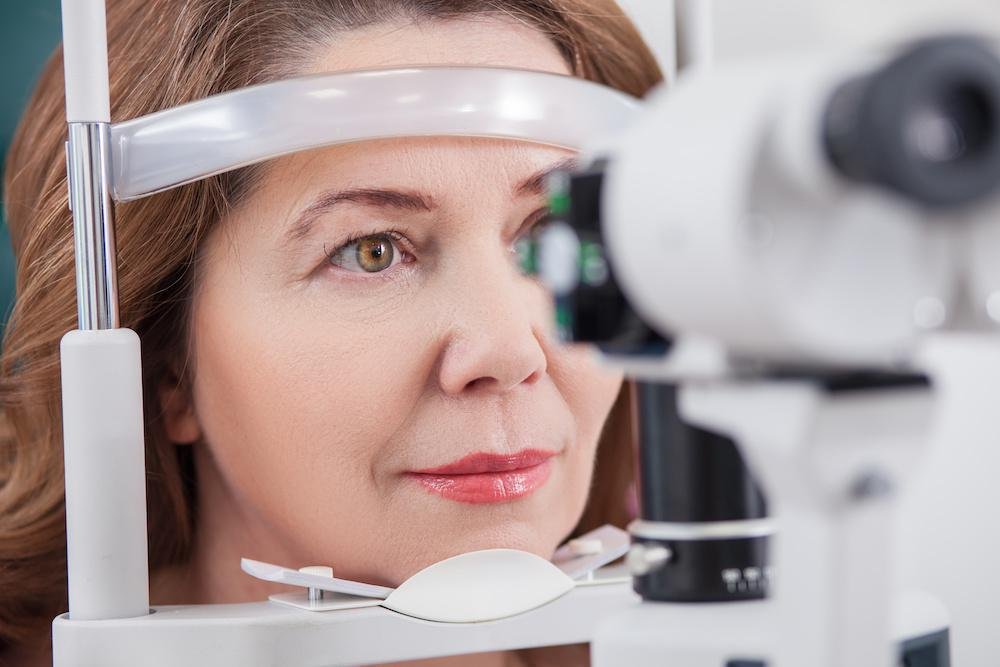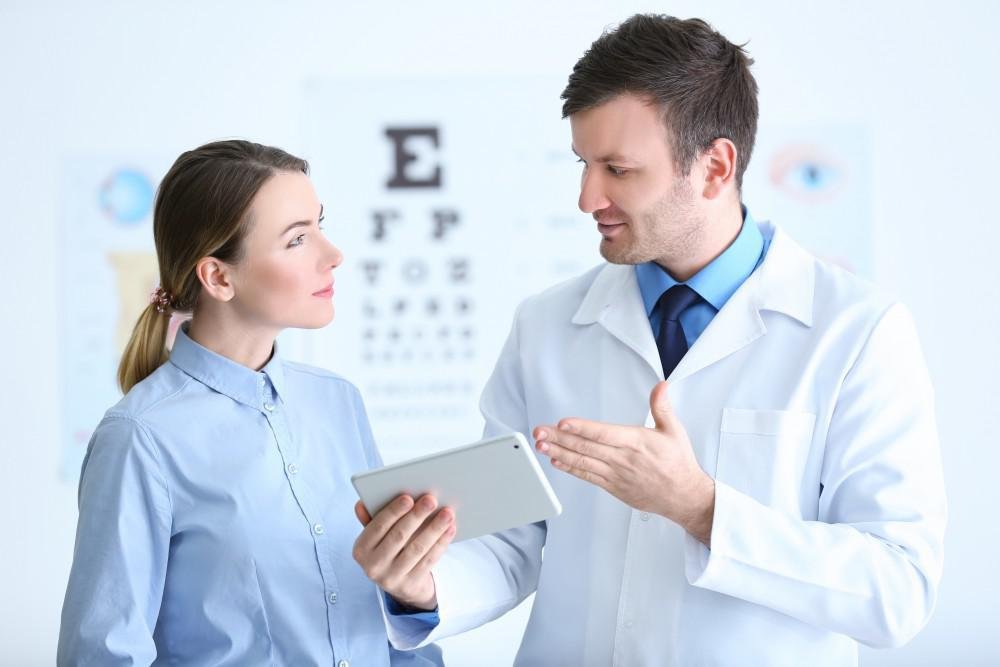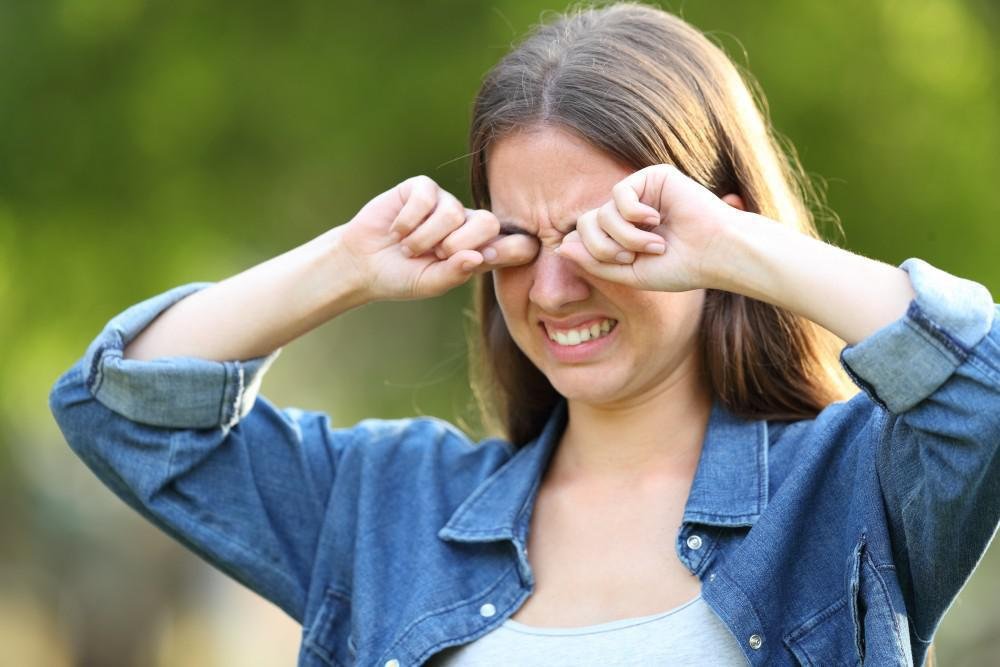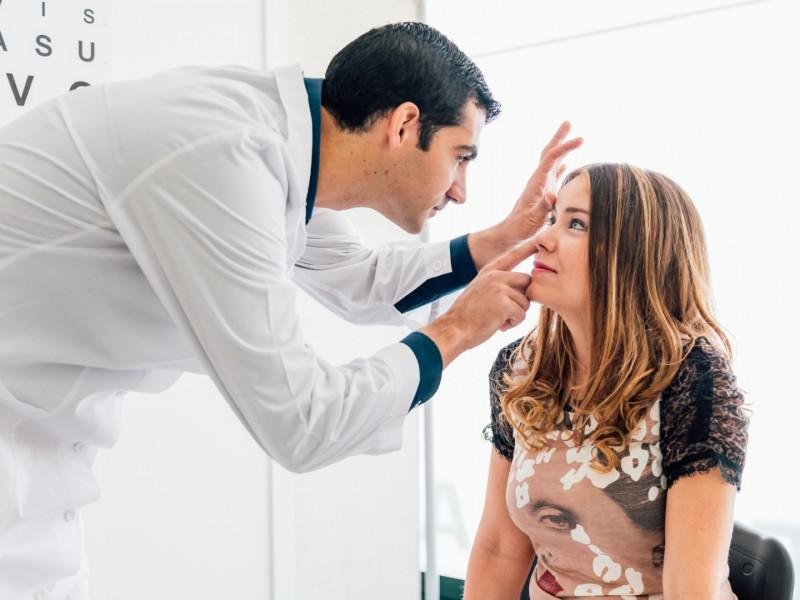
Patients most at risk
According to the Mayo Clinic, risk factors for glaucoma include people:
- Over 60 years of age
- Black, Asian, or Hispanic
- Suffering from heart disease, diabetes, sickle cell anemia, and high blood pressure
- With a family history of glaucoma
Taking corticosteroid eye drops, experiencing extreme nearsightedness or farsightedness, or possessing thin central corneas also present a higher risk for glaucoma. We monitor patients to stay ahead of any issues that may arise.
Signs of glaucoma
Chronic glaucoma often attacks your vision without leaving any telltale signs. This makes it especially difficult to diagnose without thorough eye exams. We perform dilated eye exams to check for signs of internal eye pressure (intraocular pressure). According to the Glaucoma Research Foundation, increased pressure often indicates glaucoma. However, they also note that patients within a normal range of intraocular pressure may develop glaucoma. Fortunately, when managed early, most people can save their sight.
Be aware of such symptoms as:
- Patchy blind spots
- Blurred vision
- Halos surrounding lights
- Severe headaches
- Eye pain
Should you notice any of these, contact Dr. Patel and our team to evaluate you further.
Diagnosing glaucoma
We perform multiple tests to diagnose glaucoma, including:
Ophthalmoscopy
Dilating your eyes, we widen your pupils to examine your optic nerve for any problems.
Perimetry
We shine a light into different regions of your peripheral vision as you follow it with your eyes to detect vision changes over time.
Gonioscopy
Numbing your eyes with drops, we determine if the angle between your iris and cornea is narrow and closed or open and wide. This allows us to pinpoint the type of glaucoma you may possess.
We use these tests, as well as tonometry, which measures eye pressure using a small puff of air, and pachymetry, which judges corneal thickness, to diagnose glaucoma and other eye issues.
Treating glaucoma
Should we detect glaucoma, we’ve got a variety of ways to treat it, depending upon its severity.
Eye drops
One of the most common treatments for glaucoma is prescription eye drops to lower eye pressure. These either help fluid drain from your eyes or reduce the amount of fluid your eyes produce.
Laser treatments
Lasers help remove fluid from your eyes.
Surgery
Should medicated drops fail to help, we refer you to an ophthalmologist to potentially perform surgery and shield your vision from further damage.
Protect your eyes naturally
The best thing you can do is safeguard your eyes through timely check-ups, moderate exercise, and protective eyewear. We also suggest several holistic measures to keep your eyes and body healthy, such as:
Maintain a healthy weight
A high Body Mass Index (BMI) puts more pressure on your eyes. Being too skinny can hurt, as well, since low BMI may also trigger a form of glaucoma.
Keep blood sugar on target
Studies show insulin resistance can cause higher eye pressure, a factor for glaucoma.
Eat plenty of greens
Green leafy vegetables contain nitrate, which your body converts to nitric oxide. This helps regulate blood flow and eye pressure.
Brush your teeth regularly
Periodontal disease and tooth loss have been associated with glaucoma, possibly due to increased inflammation.
Reduce your risk of glaucoma today
Nearly 3 million Americans currently suffer from glaucoma. It’s the leading cause of blindness, next to cataracts, across the globe.
Your first line of defense is regular check-ups. Visit us even more often if you have a family history of glaucoma. If you notice visual problems that don’t improve with eyeglasses, or wish to schedule a routine exam, contact our knowledgeable team at Classic Vision Care. Call us or book an appointment online today.
You Might Also Enjoy…
Is Squinting Bad for Your Eyes?
If you find yourself squinting throughout the day in order to see better, it may be a sign you need glasses. Is continuous squinting bad for your eyes? See how you can correct your vision without squinting.
Millions of people suffer from dry eyes in the United States alone. Discover five common symptoms and how to prevent and treat this uncomfortable condition to avoid further complications.
Are Glasses Better than Contacts?
Trying to decide between wearing eyeglasses or contact lenses? Consider all the factors, including comfort, ease, and appearance. We’ve compiled a list of pros and cons to help you see your way through this significant decision.
Why Sunglasses are Important All Year Long
No doubt you always have your favorite shades close by all summer. But sunglasses protect your eyes all year long, even during darker winter months. Learn how they shield your eyes from harmful ultraviolet (UV) rays any time of year.
How Astigmatism Affects Your Vision
Astigmatism causes a variety of symptoms ranging from blurred vision to eye discomfort and pressure. Understand how a comprehensive eye exam can pinpoint the cause of your symptoms and get your sight back on track.
5 Steps to Prevent Diabetic Eye Disease
People with diabetes are more vulnerable to certain eye diseases, such as glaucoma, cataracts, and diabetic retinopathy. Learn what steps you can take to slow their progression and potentially avoid them in the first place.






